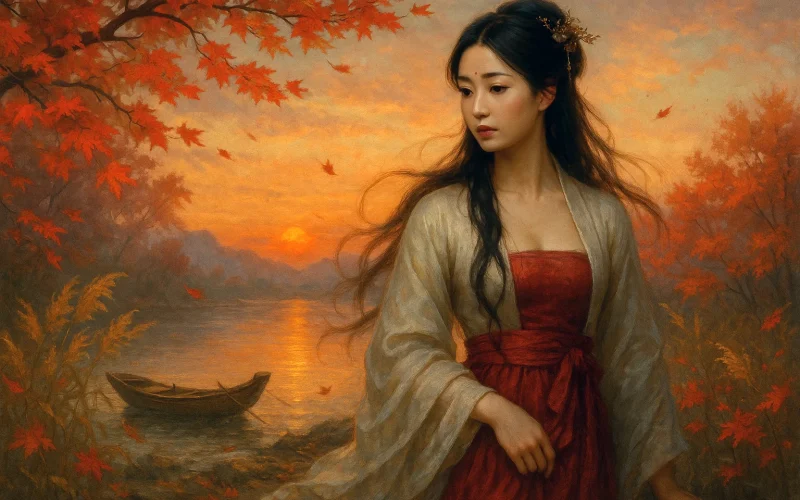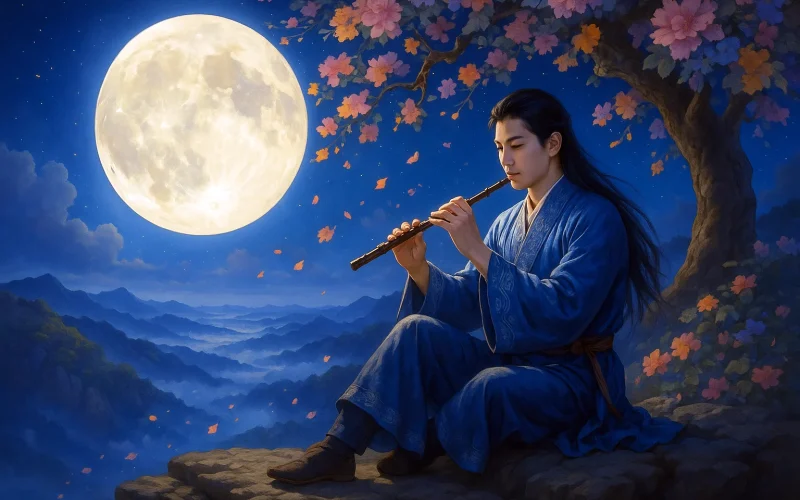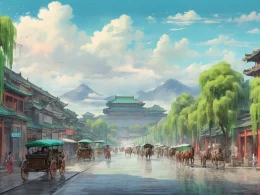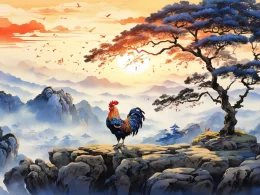All my life I've loved the West Lake's lovely view;
Once I came in a noble's crimson carriage new.
Wealth and rank are floating clouds, as people say.
Twenty springs have passed like this—up and down all the way.
Coming back, I seem to be a crane of Liaodong.
The town and people all appear strange to me.
Where is the man who was master here? Can he
Be recognized by all these faces young?
Original Poem
「采桑子 · 平生为爱西湖好」
欧阳修
平生为爱西湖好,来拥朱轮。
富贵浮云,俯仰流年二十春。
归来恰似辽东鹤,城郭人民,
触目皆新,谁识当年旧主人?
Interpretation
Composed during Ouyang Xiu's final years when he revisited Yingzhou's West Lake—the very landscape he once governed as prefect. This concluding piece of his "Ten West Lake Lyrics" series transcends mere scenery to become a meditation on time's passage. Unlike the previous nine nature-focused works, it distills decades of political turbulence and personal transformation into crystalline retrospection, where a single body of water mirrors the tides of history.
First Stanza: "平生为爱西湖好,来拥朱轮。富贵浮云,俯仰流年二十春。"
Píng shēng wèi ài xī hú hǎo, lái yōng zhū lún. Fù guì fú yún, fǔ yǎng liú nián èr shí chūn.
All my life loved this lake—
Thus came I in crimson carriage,
Official pomp.
Wealth and rank: drifting clouds.
Between looking up and down—
Twenty springs
Shed like petals.
The stanza juxtaposes enduring love ("all my life") with ephemeral power ("crimson carriage" 朱轮). The Confucian allusion to floating clouds (浮云) transforms from philosophical abstraction to lived experience, as twenty years of political cycles (流年) compress into a single horticultural image—time's petals shed indifferently. The verticality of "looking up and down" (俯仰) measures both physical observation and the full arc of a career.
Second Stanza: "归来恰似辽东鹤,城郭人民,触目皆新,谁识当年旧主人?"
Guī lái qià sì liáo dōng hè, chéng guō rén mín, chù mù jiē xīn, shuí shí dāng nián jiù zhǔ rén?
Returning now like Liaodong's crane—
City walls,
Faces in streets,
All sights newborn.
Who recognizes
The former master
Of these waters?
The mythical crane (辽东鹤), symbol of transcendent return, underscores the poet's alienation. The triplet "city walls/faces/sights" (城郭人民/触目) accelerates disorientation, each noun more personal than the last. The crushing final question ("who recognizes?") inverts the lake's role—from governed territory to indifferent witness of human oblivion.
Holistic Appreciation
This lyric poem masterfully interweaves scene and emotion, juxtaposes past and present, and blends reality with imagination. The first stanza reflects on bygone days - from the pinnacle of officialdom to finding solace in West Lake - using "wealth and rank as fleeting clouds" to articulate the philosophical insights gained through life's vicissitudes. The second stanza confronts present reality, where the alienation and melancholy of "returning" underscore the relentless passage of time and the fickleness of human affairs. Though devoid of explicit lamentation, the poem is permeated with profound desolation and the loneliness of being unappreciated. Its language appears simple yet carries profound meaning, exhibiting a fresh and timeless style that makes it one of the most emotionally concentrated works of Ouyang Xiu's later years.
Artistic Merits
This poem expresses profound emotions through simple and natural language, representing the epitome of poetic lyricism. The first stanza recalls past travels, employing allusions so subtly that they simultaneously convey personal devotion to West Lake and reflect life's fluctuations. The second stanza adapts the allusions of "the Liaodong crane" and "the former master," merging scene and emotion to express deep personal reflections. Throughout, the syntax is concise, the rhythm lively, yet the emotional undercurrents linger, demonstrating the poet's supreme artistic control. Moreover, its "clear, sparse, meaningful and bright" style profoundly influenced later poets like Su Shi, establishing a model for Northern Song lyricists to infuse poetry into their lyrics.
Insights
This poem offers us not merely nostalgia for beautiful scenery, but more profoundly, an understanding of time's ruthlessness and the fickleness of human relationships. With plain language describing inner turmoil, the poet demonstrates the wisdom of maintaining integrity and self-reflection when facing setbacks and the passage of time. Amid life's ups and downs, viewing worldly success as "fleeting clouds" and expressing one's aspirations through poetry constitutes a transcendent attitude toward life. This poem teaches us: truly profound emotions lie not in intensity but in endurance; truly deep thoughts reside not in ostentation but in tranquility.
Poem Translator
Xu Yuanchong (许渊冲)
About the Poet
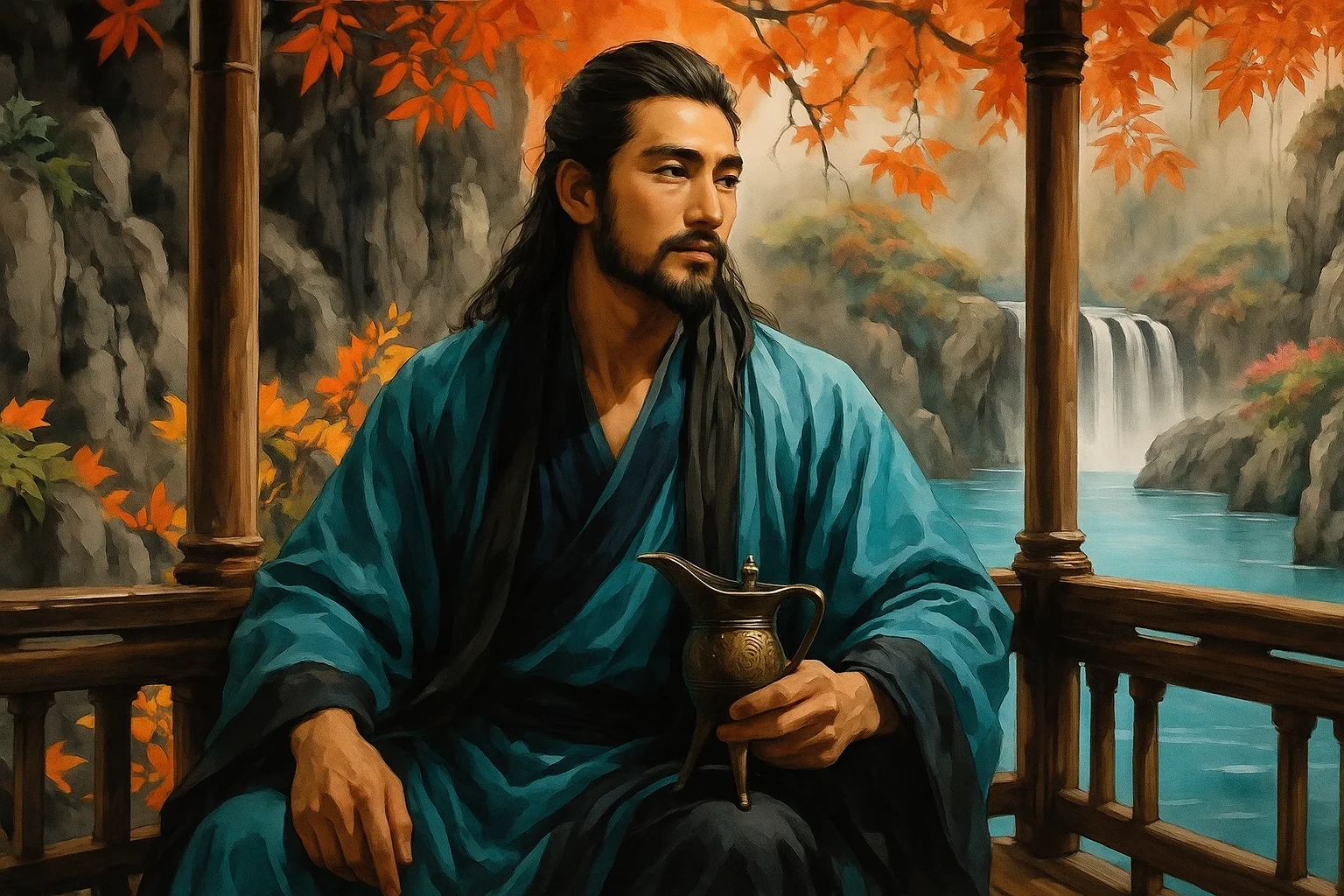
Ouyang Xiu (欧阳修, 1007 - 1072), a native of Yongfeng, Jizhou (present-day Jiangxi Province), emerged as the preeminent literary figure of the Northern Song Dynasty. After attaining the jinshi degree in 1030, he spearheaded a literary reform movement that rejected the ornate Xikun style prevalent at court. As a mentor who nurtured literary giants like Su Shi and Zeng Gong, he laid the foundation for the golden age of Northern Song literature. Recognized as one of the "Eight Great Prose Masters of Tang and Song," Ouyang stands as the pivotal figure in the transformation of Northern Song literary culture.







